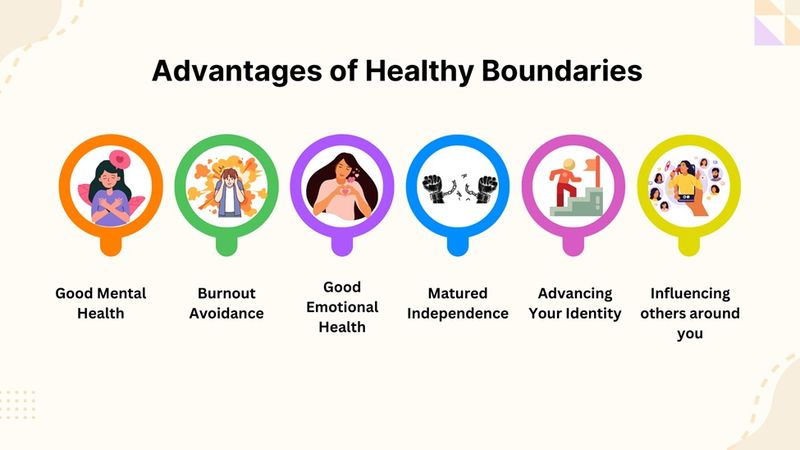17 Tips On How To Protect Your Mental Health In A Narcissistic Marriage
Navigating a relationship with a narcissistic partner can be emotionally draining and challenging. Protecting your mental health becomes paramount in such a setting, where you often feel undermined and unloved.
This blog post offers practical strategies to help you maintain your sanity and well-being, even when faced with the manipulations and criticisms that are often characteristic of a narcissistic partner.
These subtle yet effective approaches aim to empower you to live a healthier, more balanced life, without necessarily suggesting a complete withdrawal from the relationship.
Whether it’s choosing silence wisely or reconnecting with your personal passions, these methods provide a beacon of light in what might seem like a tumultuous sea.
1. How To Stay Sane When You Feel Constantly Undermined

In the whirlwind of a narcissistic relationship, feeling constantly undermined can become a norm. Yet, staying sane amidst the chaos requires a conscious effort. Begin by creating a personal sanctuary, a space where you can reconnect with your thoughts and feelings. This could be a cozy corner in your home, filled with comforting items like books, journals, and soft lighting.
Develop a routine that includes activities to ground you, such as meditation or reading. These practices not only offer mental reprieve but also help in rebuilding your self-esteem, reminding you of your worth and autonomy.
Remember, your mental wellness is a priority. Engage in affirmations that reinforce your value, affirming that you are more than the undermining words you might hear. This practice becomes a shield, protecting your core self, and allows you to maintain clarity and emotional equilibrium in the relationship.
2. Don’t argue to win—protect your energy

Arguing with a narcissist often feels like battling the wind; exhausting and futile. Instead of engaging in endless disputes, focus on protecting your energy. Understand that winning an argument is less important than preserving your peace of mind.
Practice deep breathing or mindfulness techniques when conversations become heated. Visualize your energy as a precious resource, one that should be allocated wisely. By doing so, you not only save yourself from emotional burnout but also gain a clearer perspective on the situation at hand.
Choose battles wisely and avoid those that lead nowhere. This approach empowers you to conserve strength for what truly matters, fostering resilience and emotional balance in the face of adversity. Remember, it’s not about who wins the argument, but about maintaining your inner peace.
3. Limit how much personal info you share

In a narcissistic marriage, safeguarding your personal information becomes crucial. The less ammunition you provide, the fewer opportunities there are for manipulation. Limit sharing intimate details that can later be twisted or used against you.
Cultivate a practice of journaling to process thoughts privately. Record your feelings and experiences in a safe space, allowing you to reflect without fear of exposure. Journaling acts as a trusted confidant, helping you understand and navigate your emotions.
This boundary protects your vulnerabilities and ensures that your personal narrative remains your own. By controlling the flow of information, you regain power over how you’re perceived and protect yourself from potential exploitation. This careful curation of personal data is a key strategy in maintaining mental health amidst narcistic dynamics.
4. Document things for your own peace of mind

Documentation serves as a vital tool in maintaining mental clarity in a narcissistic marriage. Keep a detailed record of interactions, agreements, and significant conversations. This practice can alleviate stress and provide a sense of control over chaotic situations.
Use digital tools such as apps or spreadsheets to organize your records. Having a factual account of events can be reassuring, especially when faced with gaslighting or distortion of reality.
Such documentation not only helps clarify confusing situations but also reassures you that your memory and perception are valid. It serves as a personal anchor, offering stability amidst the emotional storm. With everything in black and white, you can confront challenges with confidence, knowing your truth is recorded and preserved.
5. Stop chasing validation from someone who won’t give it

Seeking validation from a narcissistic partner can be a never-ending chase, leaving you feeling depleted and unworthy. Instead, find affirmation within yourself. Engage in activities that reinforce your self-worth and cultivate a sense of personal accomplishment.
Practice yoga or another form of physical exercise that celebrates your body and achievements. These practices not only enhance physical health but also boost mental well-being by reinforcing the idea that you are enough, just as you are.
Embrace your milestones and successes without the need for external approval. This shift in focus from seeking to self-sourcing validation empowers you to build a fulfilling life, independent of your partner’s recognition. Remember, the validation you seek is already within you, waiting to be acknowledged and celebrated.
6. Let go of trying to prove your point

In a relationship with a narcissist, trying to prove your point can become an exhausting cycle. Release the need to convince or correct misconceptions. Instead, choose peace over being right.
Engage in meditation or reflective practices that help you detach from the need for external validation. These moments of introspection can offer clarity and strengthen your resolve to prioritize inner tranquility over outer approval.
Relinquishing this need not only alleviates stress but also shifts focus to what truly matters: your well-being. By letting go, you empower yourself to rise above trivial conflicts and redirect energy towards nurturing your peace and happiness.
7. Use time alone as actual recovery, not avoidance

Spending time alone should be a restorative practice, particularly when dealing with a narcissistic partner. Use this time not to avoid issues, but to recover and realign with your core self.
Engage in activities that bring joy and replenish your spirit, such as reading or taking leisurely walks. This solitude is an opportunity to reflect and recharge without the pressures of constant interaction.
Through intentional solitude, nurture the parts of you that might feel overshadowed in the relationship. This practice cultivates resilience and self-awareness, enabling you to return to your partner with renewed strength and clarity.
8. Create mental space before reacting to manipulation

Reacting immediately to manipulation often leads to regret or escalation. Instead, create mental space to process your thoughts and emotions before responding. This pause is a powerful tool in maintaining emotional balance.
Consider adopting practices like writing or breathing exercises to clear your mind. These activities help you analyze situations objectively, ensuring your responses are measured rather than impulsive.
By taking a step back, you not only safeguard your mental health but also gain control over how you engage with your partner. This practice empowers you to navigate difficult interactions with grace and composure, maintaining your integrity and peace of mind.
9. Stay connected to people who ground you

In the isolating environment of a narcissistic relationship, maintaining connections with those who ground you is essential. Surround yourself with friends and family who offer support and genuine care.
Regularly schedule time to meet or communicate with them, whether through calls, texts, or in-person visits. Their presence can provide a valuable counterbalance to the negativity you might encounter at home.
These connections remind you of your worth and provide a sense of belonging and love. They act as a lifeline, offering perspective and encouragement when you need it most.
10. Let yourself grieve the relationship you hoped for

Allow yourself the space to grieve the relationship you imagined. Acknowledge the loss of what could have been without judgment.
Find a quiet place where you can reflect on your feelings. This process of grieving is crucial for healing and acceptance, helping you to let go of unrealistic expectations.
Through this, you gain a deeper understanding of your needs and desires, paving the way for self-compassion and growth. This journey is not about giving up but about moving forward with a clearer vision of what you truly want from a relationship.
11. Avoid defending yourself when it’s clearly a trap

Recognize situations where defending yourself only plays into a narcissist’s hands. When faced with baiting or accusatory tactics, choose not to engage.
Practice listening without reacting, maintaining a calm and composed demeanor. This strategy not only preserves your energy but also prevents unnecessary escalation.
Understand that not every accusation requires a response. By stepping back, you maintain control over your emotions and the direction of the conversation, keeping your mental health intact.
12. Choose your silence wisely—it’s not weakness

Silence can be a powerful ally when used intentionally. In a narcissistic relationship, choosing silence doesn’t signify defeat but rather strength and wisdom.
Understand when to speak and when to let silence be your response. This choice can diffuse tension and create space for thought and reflection.
By valuing silence, you protect your mental well-being, keeping drama and conflict at bay. It allows you to conserve energy for moments that truly require your voice.
13. Focus on what’s real, not what’s said

In the midst of manipulative narratives, focusing on tangible realities becomes crucial. Look beyond words to actions and facts that define your experience.
Review what is concrete, such as actions taken, commitments made, and outcomes achieved. This clarity helps you differentiate between reality and manipulation, providing a stable foundation for your decisions.
Grounding yourself in reality protects you from emotional turmoil and helps maintain a clear perspective on your relationship dynamics.
14. Don’t internalize their moods

In a narcissistic marriage, separating your emotions from your partner’s moods is vital. Their emotional state is not a reflection of your worth or actions.
Engage in practices like tai chi or other meditative exercises to center yourself. These activities encourage you to maintain your emotional equilibrium, regardless of external pressures.
By consciously choosing not to absorb their moods, you safeguard your mental health and reinforce your emotional boundaries. This approach fosters resilience and self-awareness, allowing you to remain grounded amidst emotional chaos.
15. Find something that’s just yours again

Rediscovering a personal passion or hobby can be a lifeline in a narcissistic relationship. Engage in activities that are uniquely yours, providing joy and fulfillment separate from your partner.
Whether it’s painting, writing, or gardening, these pursuits offer an escape and a sense of achievement. They remind you of your individuality and strengths.
This personal endeavor becomes a sanctuary where you can express yourself freely, nurturing your identity and happiness outside the relationship’s shadow.
16. Embrace Personal Boundaries

Setting personal boundaries is not just an act of protection; it’s a declaration of self-worth. Imagine the relief that comes with clearly defined limits that shield your peace. By calmly communicating these boundaries, you honor your needs without escalating conflict.
Consider boundaries as invisible lines that preserve your mental space. They help you avoid being dragged into emotional whirlwinds. Each boundary drawn is a step towards mental freedom.
Remember, boundaries aren’t walls to isolate you but bridges to healthy self-respect. Cultivating this practice can transform your sense of self in a challenging environment.
17. Cultivate Mindful Detachment

Mindful detachment offers a refuge from emotional turmoil. Think of it as an anchor that steadies you amidst the storm of narcissistic behavior. By observing emotions without getting entangled, you create space for rational thought.
This practice empowers you to respond rather than react. Imagine watching a movie where you choose what scenes to engage with. It offers clarity and peace.
Engaging in mindful detachment doesn’t mean indifference but a conscious choice to focus on what nurtures your well-being. It’s a powerful tool to reclaim your inner tranquility.







